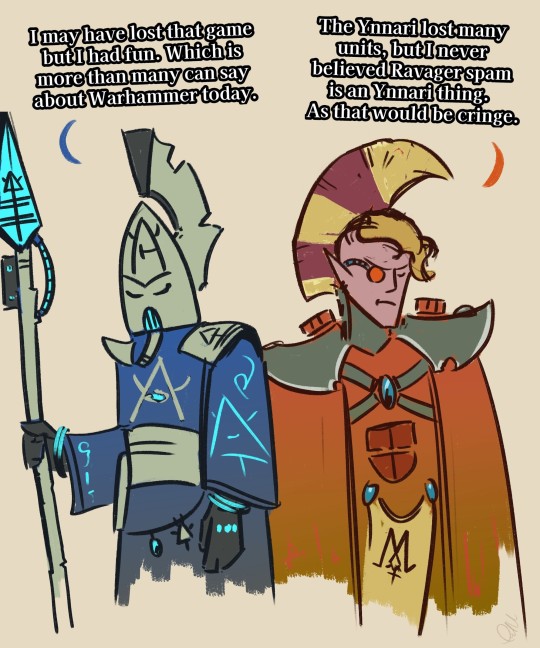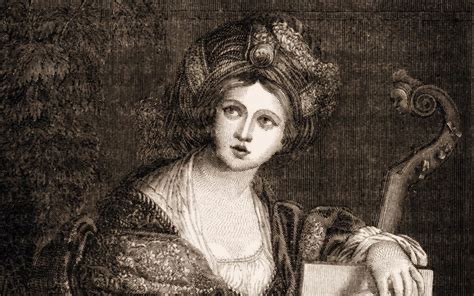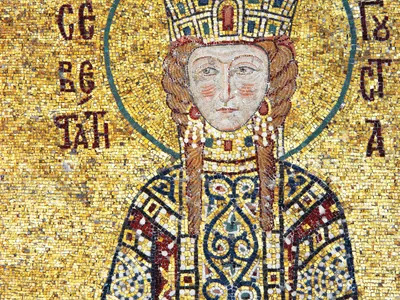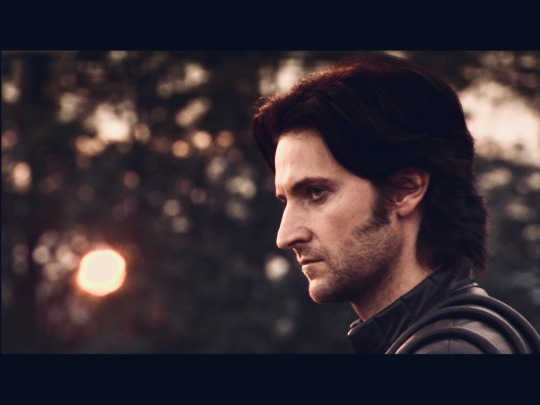#the alexiad
Explore tagged Tumblr posts
Text
"George was also instructed that the ramparts should be constructed in a new way: the majority of the wooden planks were to be left unnailed, so that if the Latins did climb up on ladders, as soon as they set foot on the planks they would upset them and crash to the ground, planks and all"
(2009 Penguin Classics version of the Alexiad)
what sort of looney tunes ass plan is this 😭😭
20 notes
·
View notes
Text

Reddit nonsens to make me sleep maybe
I have problem with that recently
32 notes
·
View notes
Text
ANNA KOMNENE // PRINCESS OF THE BYZANTINE EMPIRE
“She was a Byzantine Greek princess and historian. She is the author of the Alexiad, an account of the reign of her father, Byzantine emperor Alexios I Komnenos. Her work constitutes the most important primary source of Byzantine history of the late 11th and early 12th centuries, as well as of the early Crusades. Although she is best known as the author of the Alexiad, Anna played an important part in the politics of the time and attempted to depose her brother, John II Komnenos, as emperor in favour of her husband, Nikephoros.”

2 notes
·
View notes
Text
There is something very special to me about the Alexiad.
9 notes
·
View notes
Text
Anna Komnene, Princess and Historian
Anna Komnene is one of our only sources on the First Crusade from the Byzantine perspective. She was a Byzantine princess, historian, and intellectual. Read more about her life here! #history #crusades #womenshistory #AnnaKomnene #historian #writer
“For even the greatest of deeds, if not haply preserved in written words and handed down to remembrance, become extinguished in the obscurity of silence” -Preface, The Alexiad Anna Komnene is one of the first female historians and one of the most valuable primary sources of the Middle Ages. Her written account of her father’s reign, The Alexiad, is our only source of the First Crusade from a…

View On WordPress
#11th century#Alexiad#Alexios I#Anna Komnene#biography#blog#Byzantine#Byzantine Empire#classics#crusades#first crusade#Greek#Greek classics#Greek history#historian#history#history blog#history writing#Homer#Iliad#medieval history#princess#women&039;s history
99 notes
·
View notes
Text
I didn't realize how far gone I am until I saw an article about the similarities between Anna Komnene's account of the Battle of Dyrrachium and Anglo-Saxon Chronicles of the Battle of Hastings and whispered, "That's sexy."
#Anna Komnene#Alexiad#Byzantium#Anglo-Saxon#Battle of Hastings#Battle of Dyrrachium#academia#dark academia
2 notes
·
View notes
Text
...it is bad for generals who in a time of universal peace purposely excite their neighbours to war. For peace is the end of every war, but tho choose war in every case instead of peace for the sake of anything... this is the characteristic of senseless generals and demagogues and men who are working for the destruction of the state.
The Alexiad, Book XII, translated by Elizabeth Dawes, 2000. (220)
Concepts of war versus peace, "us" versus "them," and morality resonate across the Song of Roland and the Alexiad. Here, Anna Komnene criticizes the senselessness of instigating war without a cause, or inflicting violence for the sake of disrupting peace and one's own personal gain.
6 notes
·
View notes
Text
I doubt this is the right audience for this but........I'm going to the Savannah Banana vs. Firefighters Game at the end of the month and I want to do bracelets for some of the guys. But like what should I do for them?
List of Players: (players in bold I have an idea of what to make them but open to ideas.
Reese Alexiades
DR Meadows
Ryan Cox
Jackson Olson
Austin Kreminski
#savannah bananas#banana ball#baseball#friendship bracelets#jackson olson#dr meadows#ryan cox#austin kreminski#reese alexiades
0 notes
Text
Coking My Books 'Vefa's Kitchen'
Some years back, after we’d moved house, I made myself a promise to stop buying cookbooks. It was brought on by the almost nauseous panic that set in when I started unpacking box after box of recipe books. Almost too many to count, they were also accompanied by several box files of newspaper and magazine clippings of recipes and cookery articles. I mean – how many recipes does even the keenest…
0 notes
Text
"As he [Migidenos's son] swept past, he was dragged by an iron grapple inside the circle of wagons by a Scythian woman and so made prisoner."
2009 Penguin Classics version of the Alexiad, p. 200
#the alexiad#anna komnene#pechenegs#anna girly its very confusing to refer to everyone who's north of you as a scythian
0 notes
Text
youtube
TODAY IN PHILOSOPHY OF HISTORY
Anna Komnene, An Historian Born to the Purple
It is the 941st anniversary of the birth of Anna Komnene (in Greek: Ἄννα Κομνηνή, Romanized as Ánna Komnēnḗ; 01 December 1083 – 1153), who was born a true princess of the blood in the Porphyry chamber of the Great Palace of Constantinople on this date in 1083 AD.
Anna Komnene’s Alexiad is an account of her father’s reign as Byzantine emperor from 1081 to 1118. As a royal personage herself, Komnene had the opportunity for the best education, and her royal status gave her inside knowledge of the Byzantine court, both of which she employed in her unique history.
Quora: https://philosophyofhistory.quora.com/
Discord: https://discord.gg/r3dudQvGxD
Links: https://jnnielsen.carrd.co/
Newsletter: http://eepurl.com/dMh0_-/
Text post: https://geopolicraticus.substack.com/p/anna-komnene-an-historian-born-to
Video: https://youtu.be/uIsBxHsaX2g
Podcast: https://spotifycreators-web.app.link/e/P1jZr5CNZOb
#youtube#philosophy of history#Anna Komnene#Alexiad#dark age#civilization#Byzantium#Byzantine history
1 note
·
View note
Note
Erm, question! I've recently listened to audiobooks of Herosotus's Histories and Thucydides History of the Peloponessian War, but I'd like to move forwards in time. What are some good medieval Byzantine sources of history, or Arabic sources? Or later Ottoman ones? Also, do you know of any historians that specifically chronicle the life and deeds of Skanderbeu?
It's not necessary, but the best recs for me would be authors who have the Vibes:tm: of Herodotus.
Also, even more ideally, do you know of any online resources where I can find such authors for little or no cost (I already use my library as best as I can)?
Anyways I love your blog and every single little historical thing you reference makes me wanna learn more. I hope you have a lovely day!!
if you want to move chronologically through the Mediterranean, I would suggest Livy for your next listen, but if you want to skip ahead to the Byzantines…
for entertaining histories with a strong authorial voice, I recommend Procopius (6th century), Psellos (11th), and Anna Komnene (12th century). they’re probably the most famous of the Byzantine historians, and certainly the authors with the most accessible translations and commentary. Procopius originally wrote about the wars of the immensely consequential emperor Justinian I, but eventually soured on Justinian’s leadership and wrote the downright libelous, but very colorful, Secret History.
Psellos wrote just before the Byzantines started losing territory to the Turks in the late 11th century, and as a high-ranking member of government, he was personally acquainted with the politicians he wrote about. now, as in his own day, he’s considered one of the most important scholars and philosophers of the empire. personally, I thought Chronographia was a great read, and I think it’s been turned into a podcast (“Fourteen Byzantine Rulers”) as well. it’s much better history qua history than Procopius, in my opinion.
The Alexiad is very famous too, and like Procopius, it’s mostly limited to the life of one emperor. Anna Komnene was the daughter of Alexios I Komnenos, who was instrumental in starting the first crusade. her history takes the form of an epic poem, and is interesting for its content and its authorial context—surviving Byzantine epics are rare, and epics written by disfavored princesses are unheard of.
if you’re interested in my favorite period, the 9th-10th century, I recommend Skylitzes or Leo the Deacon. for the period up to the fourth crusade, Choniates is a good resource.
I’m far less knowledgeable about Arabic sources—I pretty much only know Ibn Khaldun (14th century, extremely influential in his historiographical methods) and Ibn Munqidh (eyewitness to the crusades, and not much for writing long narrative histories, but a great source of weird anecdotes).
and Ottomans… idk. all of my knowledge comes from secondary sources, but I can recommend The Ottomans: Khans, Caesars, and Caliphs as a pretty decent overview of the empire (also on audiobook). Osman’s Dream covers the same territory. same with Skanderbeg.
for accessing Byzantine books, very few will be in your local library, but the internet archive and libgen have a surprising amount. a number are also available as pdfs directly from Google—sometimes these use dated public-domain translations, but beggars can’t be choosers. the links in this post all go to free copies of the works in question.
#my classes on islamic civilizations weren’t heavy on the historical primary sources#one had them (but only as snippets) and the other mostly read quippy works of romantic advice and medical anecdotes#anyway I only proofread this loosely let me know if I forgot something
10 notes
·
View notes
Text
the version of the alexiad that is in my possession does not have an introduction or any such thing it is a shame i think anna mentioning her very significant brother only a few times is not as funny if you do not know that she is writing from exile after trying to usurp his throne
3 notes
·
View notes
Note
Feel free to wait to answer until after you finish up the posts on Jaehaerys's reign: if GRRM did a book(s) on J&A's reign in the style of ASOIAF, who would you like to have as the POVs?
How about not a freaking misogynistic sex-obsessed creep of a maester writing two and a half centuries after the fact?
No, honestly I don’t know why, if GRRM was so set on making a “historical” book about Jaehaerys I’s reign, he could not have written from the perspective of Princess Maegelle. He doesn’t even have to have made her a POV character (although I wouldn’t have said no to that, of course): he could so easily have written the majority of Jaehaerys’ reign as Maegelle’s chronicle of her father, somewhere between the Alexiad of Anna Komnena and the excerpted writings of Princess Irulan peppered throughout the Dune series. Why not have Maegelle comment not just on what could have been historically known about her father, but also her own experience with her brothers, sisters, and the other members of the Targaryen court? Why not have Maegelle inspired by the maesterly tradition of histories at the Citadel but also want to prove her own intelligence and insight?
Or if he wanted to go just straight POV, then the character I would have wanted to read most is Alysanne. Maybe I’m biased (lol), but I honestly think she would be the most interesting single figure from whose perspective to tell this story. I think I’ve said before, the point (IMO) of having a raging violent misogynist (like, say, Randyll Tarly) in the story isn’t to just simply say “gee, doesn’t life suck for women of Westeros”, but to explore how those attitudes affect women (not to mention men who do not perform according to the standards of that society, like Sam). Having Alysanne, ostensibly the perfect Targaryen queen, experience and react to that attitude from the man who proclaimed to love her but was in fact a cruel, sexist man would be, I think, the way to allow for Alysanne’s feelings and make her the central figure of focus and sympathy as F&B very much does not.
54 notes
·
View notes
Text
Some person, casually wondering what medieval beauty standards for men were, in my (digital) earshot.
Me:

What I said:
There is a description by Anna Komnene in the Alexiad, of a man she found hot even though he was a “barbarian” ;)
Copying it from Wikipedia:
/Byzantine princess Anna Komnene, in her Alexiad wrote a description of Bohemond's physical appearance; “The appearance of this man was, to put it briefly, unlike that of any other man whether Greek or barbarian seen in those days on Roman soil. The sight of him inspired admiration, the mention of his name terror. I will describe in detail the barbarian's characteristics. His stature was such that he towered almost a full cubit over the tallest men. He was slender of waist and flanks, with broad shoulders and chest, strong in the arms; overall he was neither too slender, nor too heavily built and fleshy, but perfectly proportioned - one might say that he conformed to the ideal of Polyklitos. His hands were large, he had a good firm stance, and his neck and back were compact. If to the astute and meticulous observer he appeared to stoop slightly, that was not caused by any weakness of the vertebrae of the lower spine, but presumably there was some malformation there from birth. The skin all over his body was very pale, except for his face which was pale but with some colour to it too. His hair was light-colored and did not go down to his shoulders as it does with other barbarians; in fact, the man had no great predilection for long hair, but cut his short, to the ears. Whether his beard was red or of any other color I cannot say, for the razor had passed over it closely, leaving his chin smoother than any marble. However, it seemed that it would have been red. His eyes were light-blue and gave some hint of the man's spirit and dignity. He breathed freely through nostrils that were broad, worthy of his chest and a fine outlet for the breath that came in gusts from his lungs."
It might give you a frame of reference 😈
Richard I (the Lionheart) was also famously described as handsome by various sources, and we have many descriptions and portraits of him by contemporaries plus a well-preserved effigy from his tomb if I recall correctly. He was tall, even by today‘s standards (around 6’4”, ) had grey eyes and a full head of red/auburn hair, a long straight nose, and the Itinerarium Regis Ricardi (an account from the early 13th century, about the 3rd Crusade) describes him like this: “He was tall, of elegant build; the colour of his hair was between red and gold; his limbs were supple and straight. He had long arms suited to wielding a sword. His long legs matched the rest of his body.“
In the West during the high Middle Ages at least, I can tell you that the ’ideal’ age for a man was considered to be in his 30s/early 40s, as they thought that was both physical and mental prime for men (strong, but matured into his strength.)
I am not sure how to feel about having this information available in my brain, for no other reason than I am both a nerd and a simp. In a good way 🤭🫡
‘Hope it helps, though!
Them, probably:

When I get committed (to Guy) to a special interest, I get *committed*
What I wanted to say (if I didn’t feel I should cite sources 😂)

Listen,
5+ years ago, I watched a silly BBC show with a budget of ‘whatever they could find between the sofa cushions’ and it included this guy person:

And, well, sometimes a character just crosses your path at the right time and ends up nesting in a corner of your soul for some reason. I don’t know what else to say.
In that corner, he’s real.
3 notes
·
View notes
Text
HIST131C: Martyrdom and Barbarism
Martyrdom and barbarism are two among the many themes that both the Alexiad and the Song of Roland share. This project hopes to explore, through this Tumblr blog I started, such themes in a multifaceted way. Throughout our class, we have worked toward gaining an "unflattened" understanding of history: to avoid falling into binary or monolithic historiographies. Instead, we have constantly sought to relate our historical Crusades content to contemporary "Crusading mentalities,"
All the sources beyond sources posted on Sakai are linked in the posts, and images are hyperlinked to their sources -- so just click on them. Tumblr puts the most recent posts first (and clearly I didn't think that through until I realized I made a good call on writing the introductory post last). I didn't plan out the posts in a particular order, so I'm sorry if you need to do a bit of scrolling! Padlet would've also been useful, but I feel like Padlet's presentation appears more crammed, and that I can only write shorter captions. Not only is Tumblr nostalgic for me, I can also write long, detailed posts -- which is always satisfying after you do a lot of research into something!
Working on this project has unveiled a lot more about the Song of Roland and the Alexiad to me -- in how they relate to maps, contemporary politics, music, manuscripts, material culture, old French poetry, and even art. I always enjoy learning about all these different aspects beyond the conventional historical events timeline or statistics, and I have learned many new things in the process of doing this.
Of course, for music, the most obvious song to me has to (undeniably) be from my secondary school history teacher's favorite album: Pink Floyd's Dark Side of the Moon.
Enjoy the blog!
-inq
0 notes